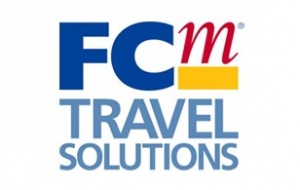Companies scrutinise traveller booking behaviour to contain costs

The booking behaviour of individual corporate travellers is being put under the microscope as the travel market rebounds and companies strive to minimise costs.
According to leading corporate travel and expense management specialist FCm Travel Solutions, companies across Asia Pacific have been closely monitoring their travellers’ purchasing behaviour as a way of identifying further cost savings.
FCm’s Asia Pacific executive general manager, Rob Flint, said companies were keen to ensure the cost saving benefits they received during the Global Financial Crisis were maintained as market conditions improved and airfare and accommodation prices rebounded.
As a result, he said travel management reporting had taken on a new level of importance with corporates looking to squeeze as much value from their travel budget as possible.
“While 2009 was about airline, hotel and TMC (travel management company) contracts, the focus for 2010 is on the holistic purchasing behaviour of travellers,” he said.
ADVERTISEMENT
“The first half of 2010 has seen clients relying on TMC travel data reporting to identify reasons for missed savings. Clients have been using these reports to gain a better understanding of the ‘why’ factor of individual buying behaviour and then using that information to implement more cost effective purchasing strategies.
“Corporates are using multi-level reporting to drill down to individual traveller activity to look at who the traveller is, their itinerary details and what the reason code is behind their booking.
“A traveller may have booked an airfare which isn’t the lowest cost option because they need flexibility for their travel or for some other itinerary-related reason, as a result companies are looking at these kinds of bookings to find out why there are missed savings.
“By looking at the booking patterns of individual travellers, companies get a much clearer insight into how and why their travel dollars are being spent and if there needs to be any tightening of travel policies.”
Mr Flint said clear and concise travel management reports on lost savings that were categorised by individual traveller and department were making it easier for corporates to understand the reasons behind each booking and to reach out to travel policy offenders.
“Reporting provides tangible evidence of non-compliance and puts individual traveller buying behaviour under the microscope for all to see, which acts as a powerful tool for conformity,” he said.
“Companies are using reporting tools to analyse individual booking behaviour and curb any travel cost blowouts as the market strengthens and the rock-bottom prices of 2009 eventually disappear post the Global Financial Crisis.”

